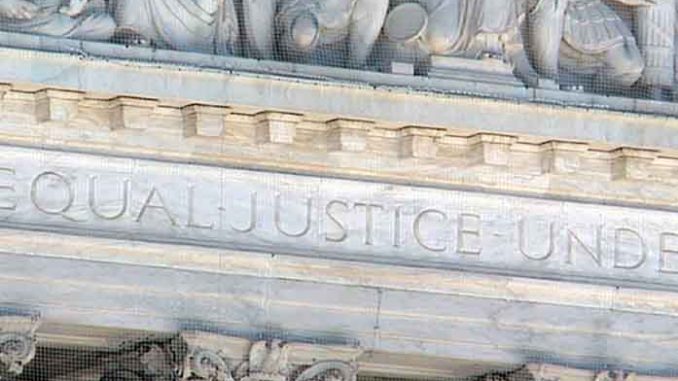
An attorney disbarred in 2019 following a nearly 40-year career during which he filed more than 2,300 civil cases ostensibly on behalf of the disabled community lost his appeal of a Maricopa County judge’s order requiring payment of attorney’s fees as sanctions for filing a frivolous lawsuit against Arizona Attorney General Mark Brnovich.
According to a July 20 decision by the Court of Appeals, Peter Strojnik filed more than 1,700 cases in Arizona state court and more than 160 cases in federal courts in Arizona in which he alleged various “minor, even trivial” violations of the Americans with Disabilities Act (ADA) and Arizona’s version of the ADA (AzDA).
The lawsuits were essentially cookie-cutter complaints, but Strojnik would generally refuse to dismiss a case even if the defendants immediately corrected the alleged problems, unless he was paid thousands of dollars in attorneys’ fees, the appellate court decision noted.
The demand for fees “appeared unsupported by the amount of work necessary to prepare or pursue these complaints,” the decision authored by Judge Brian Furuya states. At one point, a federal judge referred to Strojnik’s practices as an “unethical extortion of unreasonable attorney’s fees from defendants.”
In 2016 and 2017, Arizona Attorney General Mark Brnovich, acting on behalf of the State of Arizona, intervened in a several of the state court cases and succeeded in getting the cases dismissed. In response, Strojnik had an opinion editorial published in the Arizona Republic in which he criticized Brnovich’s action.
The State Bar of Arizona requested Strojnik’s interim suspension from the practice of law in March 2018 and later filed a formal complaint which resulted in Strojnik’s consent to disbarment. But in June 2019, Strojnik served the attorney general with a notice of claim, which is required at least 60 days prior to filing a lawsuit against any state entity, employee, or official.
The notice of claim must be served within 180 days after “the cause of action” accrues.
Strojnik’s went ahead with the lawsuit in September 2019, alleging the State Bar of Arizona conspired with Brnovich to halt ADA-related litigation by stripping Strojnik of his right to practice law. The lawsuit sought monetary damages as well as a court order requiring Brnovich to conduct periodic AzDA compliance reviews.
The lawsuit also alleged the attorney general was personally liable for Strojnik’s damages.
A Maricopa County judge dismissed Strojnik’s lawsuit on multiple grounds. The judge also ordered a sanction against Strojnik by requiring him to reimburse taxpayers for “reasonable attorneys’ fees” expended by the attorney general’s office. The order also requires Strojnik to reimburse Brnovich and his wife for attorney’s fees they personally expended.
Strojnik then appealed, arguing against the sanctions, and seeking to have his lawsuit reinstated.
In a unanimous decision, the court of appeals found Strojnik’s notice of claim was untimely, that the Maricopa County judge did not err in considering documents from Strojnik’s attorney discipline proceedings, and that Strojnik’s argument that Brnovich is personally subject to liability “is without merit.”
The decision also notes Strojnik had no standing to seek a court order forcing Brnovich to conduct periodic compliance reviews which are discretionary under state law. Strojnik also lost on his appeal of the sanction of reimbursement of attorney’s fees.
“Strojnik argues that bringing his lawsuit was not sanctionable because of the right to petition under Section 5, Article 2, of the Arizona Constitution. But the right to petition the government does not extend to frivolous or harassing lawsuits brought in bad faith, which is what the superior court found Strojnik’s claims to be,” Furuya wrote.
But now Strojnik owes ever more to the parties, as the court of appeals awarded additional attorneys’ fees incurred on appeal because Strojnik’s appeal “lacked substantial justification.”
Public records from the State Bar of Arizona show Strojnik was disciplined before his 2018 suspension and 2019 disbarment. In 1990 he was censured stemming from a 1986 complaint. He was then reprimanded and later suspended in 2011 before being reinstated in 2012.
Court records show Strojnik continued to file lawsuits in federal court even after being disbarred. He did so by listing himself as the plaintiff, which allowed him to act without an attorney.
Earlier this year a federal judge deemed Strojnik a “vexatious litigant” meaning he cannot initiate any new lawsuits in the U.S. District Court of Arizona or parts of California without a judge’s permission.

